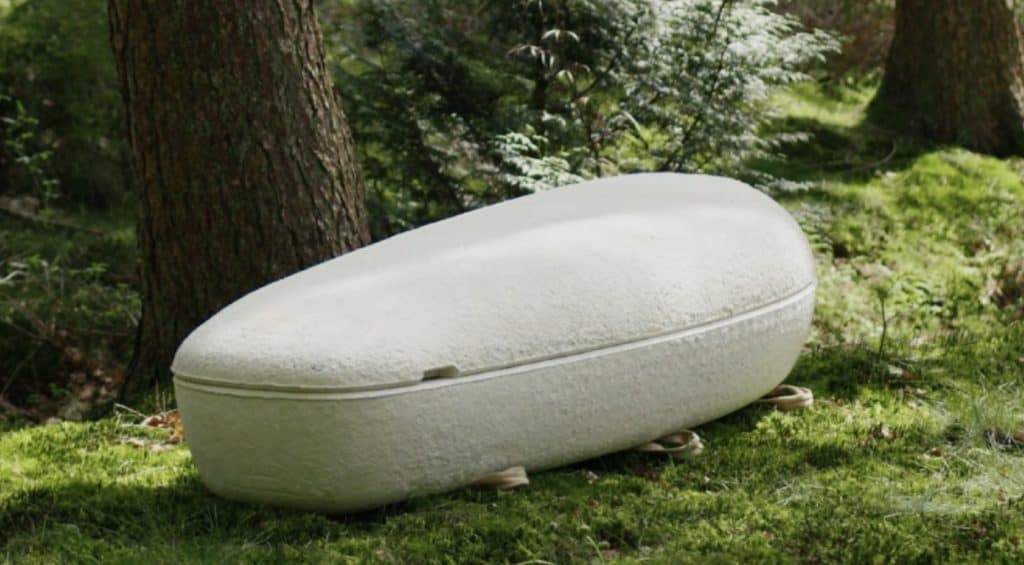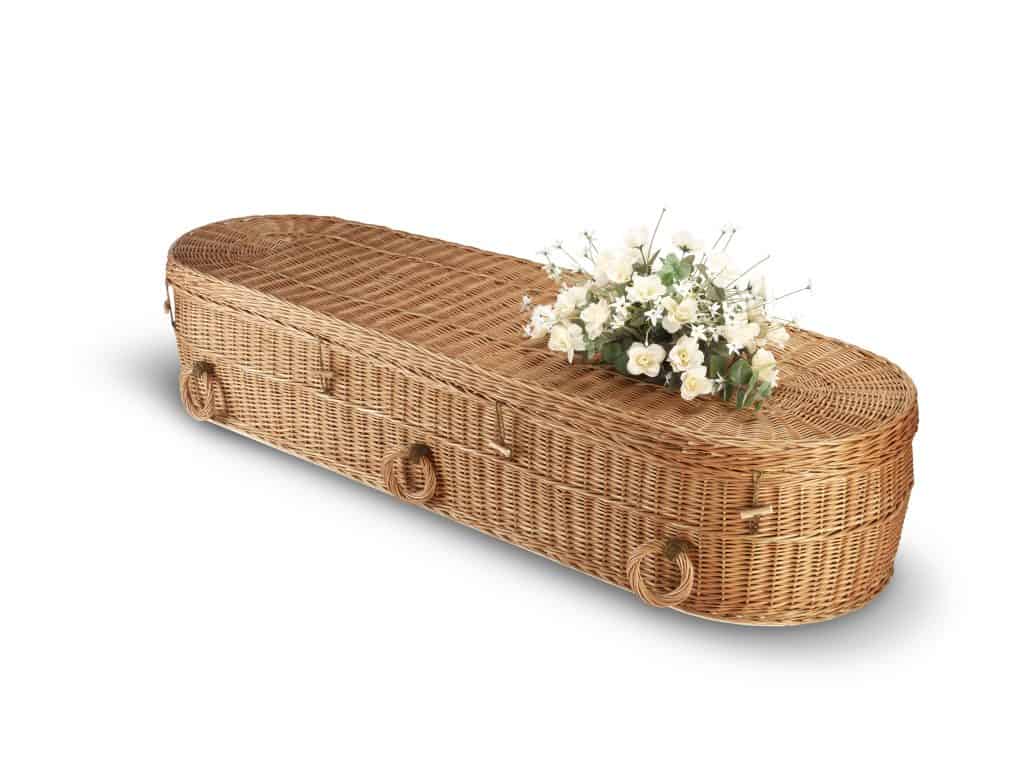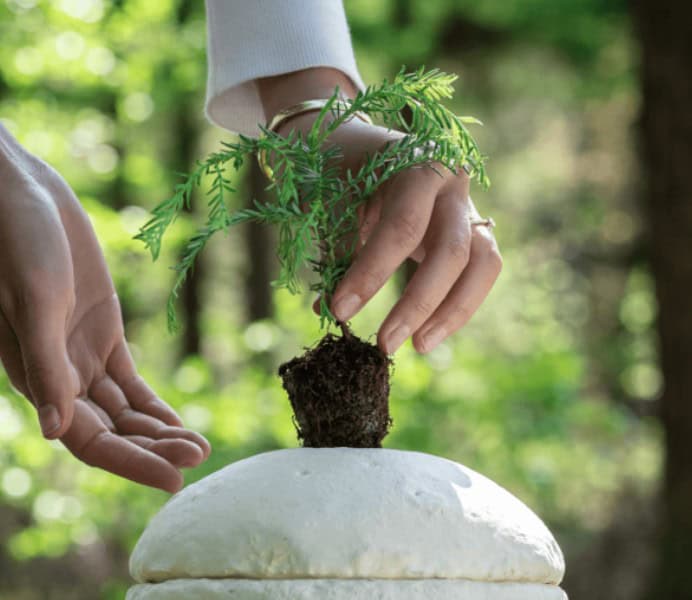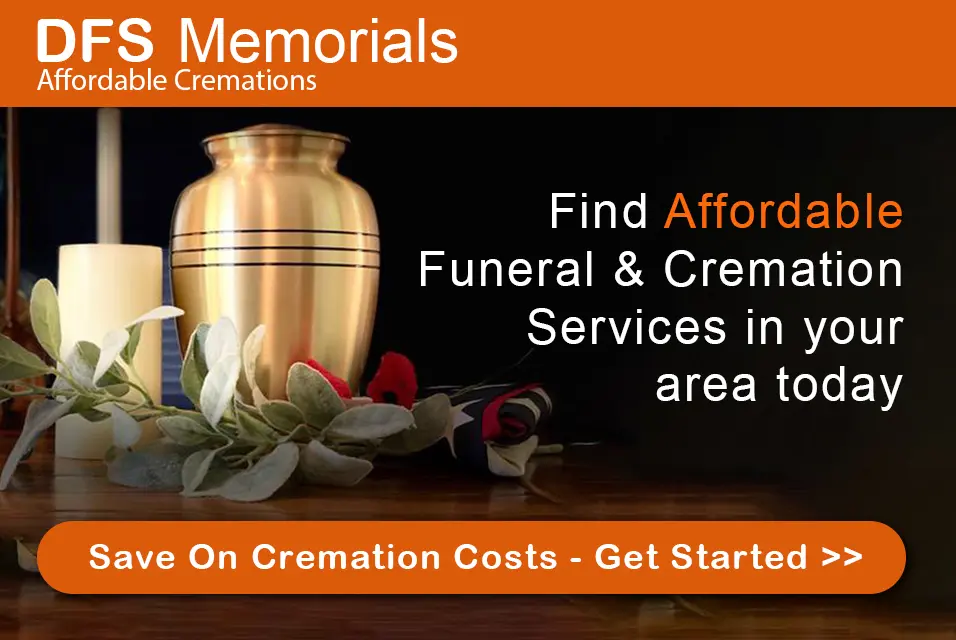Arranging a basic cremation or natural burial and conducting your own memorial service

Only a century ago, death care was primarily a ritual performed in the family domain. A greater number of people died at home, and families generally cared for and prepared their deceased without the intervention of funeral directors. Women often played the caregiver role from midwife to death doula.
The introduction of embalming into everyday funeral practices after the Civil War changed the funeral profession into what we know today. As the business of the professional funeral director grew, so the ancillary products and services expanded in range and price.
Now, we have reached a point where a funeral can be one of the most significant single purchases you make in a lifetime.
But times are changing, and home death care, home funerals, family-directed funerals, natural burials, green burials, life celebrations, and simple ash scattering ceremonies are all becoming intrinsic aspects of today’s funeral industry.
They say everything goes full circle, and death care is now witnessing this change as families begin to demand more affordable services and more control and involvement in the death care ritual.
Why does a funeral cost so much?

For half a century or so, funeral costs have been going up. In 1960, a funeral cost just $708, and just over 60 years later, it will cost 10 times this. The National Association of Funeral Directors (NFDA) now estimates that the average funeral costs $7,848, not including a cemetery plot.
Why does it cost so much? All the services you render from a funeral establishment are at a cost, and you also have the overhead for the funeral director to maintain his premises, equipment, and staff. So this overhead is built into the basic service charge, plus then you pay separately for all ancillary services such as vehicles, embalming, refrigerated storage, etc.

Any funeral merchandise you purchase will also have a markup fee. The commission on selling caskets and urns can significantly add to the funeral home’s revenue.
Funeral homes are businesses, so they need to operate at a profit, but the question is how much they should profit from their services.
In contrast, a simple home burial or cremation should not cost more than $2,000 and can probably be done for less.
Do I have to employ the services of a funeral director?
The laws about whether you legally must employ the services of a funeral director do vary by state. In most states, you do not legally have to use the services of a funeral director, and you can entirely conduct your own funeral services.
However, the following states DO require you to employ the services of a funeral director to complete the filing of the death certificate and the burial/cremation and transit permits:
| State | Legislation |
| ALABAMA | A death certificate must be certified by a funeral director. Probate & Will law dictates that a licensed funeral director must conduct all body dispositions. |
| CONNECTICUT | Requires a funeral director to sign on the death certificate and that only a licensed funeral director (or embalmer) can remove or transport a body. |
| ILLINOIS | Defines that a “funeral director or person acting as such” can only include funeral directors and their employees. |
| IOWA | The law states that burial permits can only be issued to funeral directors. (Other statutes refer to a “person in charge” of the disposition, which could apply to the next of kin. |
| INDIANA | Requires a funeral director’s involvement in obtaining all permits plus a funeral director’s attendance at the body’s final disposition. |
| LOUISIANA | A death certificate must be certified by a funeral director plus a funeral director’s attendance at the body’s final disposition. |
| MICHIGAN | A death certificate must be certified by a funeral director, who must also attend the body’s final disposition. |
| NEBRASKA | Requires a funeral director to supervise all dispositions. Funeral directors also have the authority to issue a transit permit to move a body out of state. |
| NEW JERSEY | Requires a funeral director’s involvement in obtaining all permits plus a funeral director’s attendance at the body’s final disposition. Only a licensed funeral director can collect & transport a body. |
| NEW YORK | Requires a funeral director’s involvement in obtaining all permits plus the attendance of a funeral director at the final disposition of the body. Only a licensed funeral director can collect & transport a body. |
You may still conduct your own funeral services in some of these states, but you will need the assistance of a funeral director to complete the necessary permits and certificates.
The funeral director may also wish to supervise the burial or cremation to ensure the disposition is conducted as per the permit.
What help or advice is there on how to care for the deceased yourself?

Several organizations provide guidance and support on how to care for the deceased yourself and how to conduct a home funeral. The National Home Funeral Alliance (NHFA) is a non-profit organization with members across the United States that helps educate and advocate for families’ rights to care for their own dead.
The Funeral Consumers Alliance (FCA) also supports families’ right to conduct their own funeral services. The FCA has a helpful resource page with links to organizations that can help families with home or family-directed funerals.
The Home Funeral Directory also provides a directory of funeral professionals and organizations listed by state that can assist with a home funeral in your city and information about how to conduct one.
Visit our Directory of Green & Natural Burial sites in the U.S. to locate a natural burial cemetery near you.
What is a green burial or natural burial?

A green burial or natural burial refers to a burial where no artificial processes are employed. The deceased is buried in natural woodland or meadowland, in natural products such as a shroud, wicker, or wooden casket.
No unnatural headstones or grave markers are allowed. Instead, simple, natural flat stone markers may mark a gravesite, and modern survey techniques, such as GIS (geographic information system), are employed to record gravesites.
A green burial site is often a conservation site, with no irrigation, pesticides, or herbicides used, restoring the area to a natural state. Sometimes, native trees or shrubs can be planted over a burial site to create a natural and beautiful organic memorial.
A natural burial is more aligned with a natural life cycle approach and appropriate for ecologically minded people.
Do-it-yourself: A family-directed funeral

These days, we are all familiar with the role of the funeral director. Like a film director, he is there to direct and orchestrate an event, but this is the movie of a life. Sometimes, families can feel that a funeral director has not fully embraced or reflected the legacy of the deceased person.
This may have been different in the days when we all lived in small communities and the local undertaker knew everyone. Today, a modern funeral director may have never met the deceased and have no knowledge other than that gleaned from a distressed family.
This is where a family-directed funeral can seem so much more meaningful. The family knew the deceased well and was best placed to direct the event.
What receptacle can be used for a green burial?

As mentioned above, a green burial requires the deceased to be buried in the earth as naturally as possible. For this purpose, any natural product can be used. A linen shroud can be wrapped around the deceased, or a wicker basket, woolen casket, or simple wooden box can be used.
If you build a wooden box, a nice touch is that family and friends can all write their goodbye messages on it before the burial, making it extremely personal.
Many organic burial receptacles are on the market now, with newer innovations such as Mushroom Coffins, Mycelium Burial Shrouds, and Mushroom Cremation Urns.
Arranging a simple cremation

If you are not opting for a burial but instead have chosen to have a basic cremation performed, you can arrange this yourself at a minimal cost. Arranging a direct cremation, which is when the deceased is collected and transported directly to be cremated, allows the family to direct the disposition.
Once the deceased has been cremated and the cremated remains returned to the family, a memorial service can be arranged. The family can conduct this as and when is convenient for family and friends.
Locating an Affordable Direct Cremation Service Provider
DFS Memorials is a network of affordable cremation service providers across the U.S. that offer simple, easy-to-arrange, direct cremation services. A direct cremation service costs between $795 and $1,195, although this varies by location. Use the map below to locate a provider near you. All locations list their package price for a basic cremation.
Conducting your own memorial service or funeral ceremony
A great aspect of a do-it-yourself funeral is being able to conduct your own memorial service or funeral ceremony. You can make this event as befitting to the deceased as you choose.
Why pay a stranger to deliver a funeral service for your loved one when you can prepare and deliver something personalized and unique?
Whether you arrange a basic cremation and then conduct your memorial service, or whether you arrange a natural burial and conduct your own funeral service – you are in control, and you can arrange the tribute you desire.
Ideas for arranging a commemorative memorial service
There are many wonderful ideas for arranging a special and personalized memorial service today. Whether you decide on a religious service or just a commemorative service, many options are open to you.
You can choose a special location, such as a church, community center, or the deceased’s favorite haunt. You could even hold an outdoor event or BBQ. The possibilities are endless. The more family and friends you can get involved, the more special and personalized the event will be.
For more ideas on hosting your own funeral or memorial service, read How to Create Your Own Memorial Tributes and A Life Celebrated.
You can hold a themed service to remember something meaningful to the deceased, requesting all guests participate in the theme.
You can prepare your own memory board, table, or box, or ask all guests to bring something that symbolizes their memory of the deceased.
Activities such as lighting candles, even Chinese lanterns, and releasing butterflies or doves are all relatively inexpensive symbolic gestures that can be inspirational at a memorial service.
Eulogies can be written and delivered by family and friends. There is no set format, so you are free to arrange a service that best reflects your loved one with no limitations on time, number of attendees, or location.
Check out this Step-by-Step Guide to Writing a Eulogy.
The growth in home funerals and family-directed funerals will most likely continue. As the Baby Boomers move into their retirement years, we all become more ecologically minded citizens, and the recession’s impact forces many to cut costs.
Related Articles:
Resources:


